To make food and agriculture more sustainable, we are focusing on areas where our size and market presence can make a significant impact: land use, climate change, water resources and farmer livelihoods.
Addressing climate change
For more than 20 years, Cargill has been taking action to mitigate climate change by steadily reducing greenhouse gas (GHG) emissions in our operations. Now, against the backdrop of the Paris Agreement and the U.N. Sustainable Development Goals, we are working with The Nature Conservancy and other partners to chart a bolder path forward.
Renewable energy has long been central to our work. Using 15 types of renewable energy at our facilities worldwide helped Cargill avoid 1 million metric tons of GHG emissions this year. What sets Cargill apart is our use of biomass – often byproducts of the agricultural goods we process that might otherwise go to waste. In Southeast Asia, for example, palm fruit fibers and hulls power nearly all of our oil palm plantations and mills.
We also are deploying systems that generate combined heat and power on site, decreasing the amount of electricity we buy from the grid. The ability to produce heat and power from the same source reduces our GHG emissions. For instance, recent upgrades at our oilseeds facility in Riesa, Germany, have helped lower the plant’s GHG intensity by more than 20 percent.
To accelerate GHG reductions, our new climate project is exploring energy use, transportation and supplier relations related to row crop farming and livestock production.
Shipping more efficiently
As one of the largest charterers of dry bulk and tanker shipping, Cargill is advancing sustainable ocean transportation. Today, 98 percent of Cargill’s dry bulk fleet has been vetted with one of the five highest grades for efficiency from RightShip. This year, we supported the Carbon War Room’s efforts to decarbonize maritime industries. And alongside 47 other shipowners and charterers, we called for ambitious action and stronger regulations on sulphur emissions in ocean shipping.
Protecting soil and water
Cargill is a founding member of the Midwest Row Crop Collaborative, which unites industry and conservation leaders to improve soil and water quality in the U.S. states of Illinois, Iowa and Nebraska. Working with established groups like the Soil Health Partnership and Field to Market, the collaborative is supporting farmer-led efforts to reduce nutrient loss and enhance the efficient and sustainable production of commodity crops. This year, the collaborative helped fund 20 new demonstration farms in three priority watersheds to test practices that can improve soil health, such as decreased tillage, advanced nutrient management and cover crops.

See more from our 2017 annual report
Leading For Impact
We take bold action to lead for impact.
Expanding Markets
We connect with new partners to expand markets.

